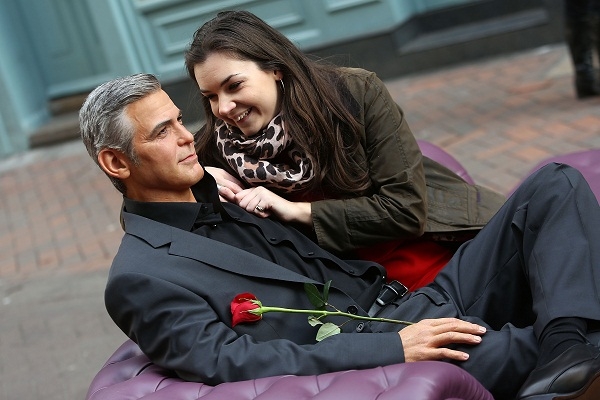Schmaltz just doesn’t sit well with traditional English sensibilities. We spend hundreds of millions of pounds on Valentine’s Day each year whilst acknowledging that it’s a load of commercial tosh.
There’s little point in wrapping love in a lace doily when at heart it’s a frill-free experience. Lovely as Elizabeth Barrett Browning’s How do I love thee? is, we’re more honest with ourselves if we savour particularly those great love poems which possess an anti-romantic streak. Direct, matter-of-fact verses will often chime better with our general disposition.
That’s true today perhaps more than ever. We’re no longer genteel enough to take affront to the threat of worms trying a Coy Mistress’ virginity, or to John Donne’s sexual metaphor in The Flea. Who knows, perhaps the current vogue for vampires even further intensifies their erotic appeal. The familiar motif of treasuring a lover’s scarf, or of Warming Her Pearls (Carol Ann Duffy) is totally subsumed by the outer-body carnality of Donne’s fantastic first stanza:
‘Marke but this flea, and marke in this,
How little that which thou deny’st me is;
Mee it suck’d first, and now sucks thee,
And in this flea, our two bloods mingled bee;
Confesse it, this cannot be said
A sinne, or shame, or losse of maidenhead…’
There’s a constant thrill in being locked out of the bedroom and left only to imagine what’s going on inside it. Hence, too, the enduring success of Philip Larkin’s High Windows, in which the aged poet looks at a young couple only to ‘guess he’s fucking her and she’s/Taking pills or wearing a diaphragm’. It’s one’s perspective on loving and being loved that changes in life, not the fact of it. There is romance in remaining realistic.
Many other love poems may seem more romantic to us now than when they were first published. Wendy Cope’s 1986 poem Lonely Hearts, with its snapshots of newspaper lonely heart columns, is far more involving than we might imagine a modern equivalent on online dating to be. In essence, though, Lonely Hearts is shamelessly no-nonsense, as love should be:
‘…Executive in search of something new – Perhaps bisexual woman, arty, young. Do you live in North London? Is it you?’
‘Successful, straight and solvent? I am too – Attractive Jewish lady with a son. Can someone make my simple wish come true?’
But probably the best thing about the anti-romantic love poem is that it throws its author a lifeline. Less awkward to express one’s love through some bizarre yet unhackneyed scenario, than through emulating a Shakespearean sonnet.






Comments